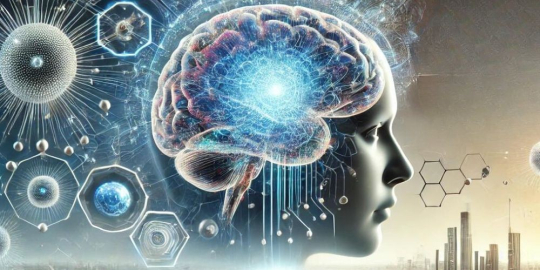
Artificial intelligence (AI) continues to spark intense debate and fascination. Google’s principal researcher and well-known futurist Ray Kurzweil believes that we are on the cusp of a monumental shift. The melding of human consciousness with cybernetic intelligence is no longer the stuff of poorly scripted science fiction. Kurzweil predicts we are heading towards a future where our intelligence will expand a millionfold by 2045, ushered in by nanobots able to integrate seamlessly with human brains.
Kurzweil maintains that his past predictions remain on track; by 2029, he expects AI to reach human-level intellect. This isn’t just a hypothetical exercise. He differentiates between artificial general intelligence (AGI), which matches the abilities of top humans in multi-faceted domains, and human-level intelligence, which would excel in select fields. Critics may find this audacious, but Kurzweil insists that AI will eventually exceed human capability, mastering even the subtleties of Oscar-winning screenwriting and generating profound philosophical insights.
The visionary asserts that the Singularity – the merging of human and artificial intelligence – will revolutionize our mental capacities. He foresees the use of brain-computer interfaces, eventually evolving into nanobots, to enhance our natural cognition. These microscopic robots will enter our brains noninvasively via capillaries. Imagine an era where human consciousness and cybernetic intelligence coalesce, resulting in what Kurzweil describes as an intelligence expansion a millionfold, enhancing not just our intellect, but our self-awareness and consciousness.
This concept, however, stirs unease among skeptics. The transformative yet invasive idea of altering physiology with nanomachines feels profoundly unsettling. Kurzweil's reassurance draws a parallel with the advent of mobile phones. Initially expensive and inefficient, these devices have become indispensable and widely accessible. Kurzweil suggests a similar trajectory for brain-machine interfaces: as the technology matures, it will become more affordable and beneficial to a broad spectrum of society.
Kurzweil's predictions are both exhilarating and daunting. His outlook challenges our understanding of human potential and AI’s role in society. While the vision of nanobots transforming our minds seems lifted from the pages of speculative fiction, it’s rooted in a persistent techno-optimism. Could we indeed witness a future where human intelligence is magnified exponentially and seamlessly intertwined with machines? Kurzweil remains steadfast in his belief, urging us to prepare for a future that will redefine the boundaries of human and artificial capabilities.